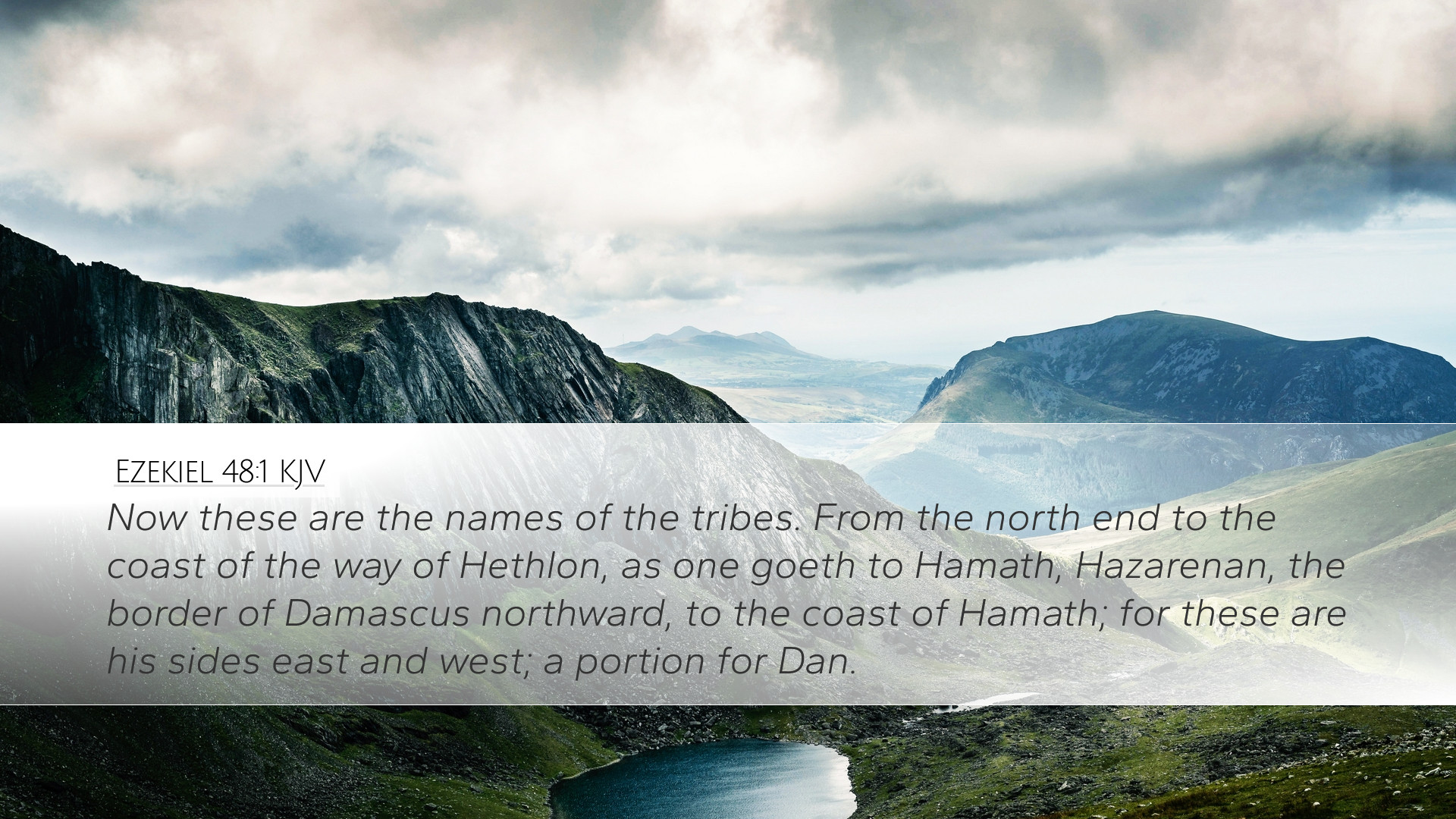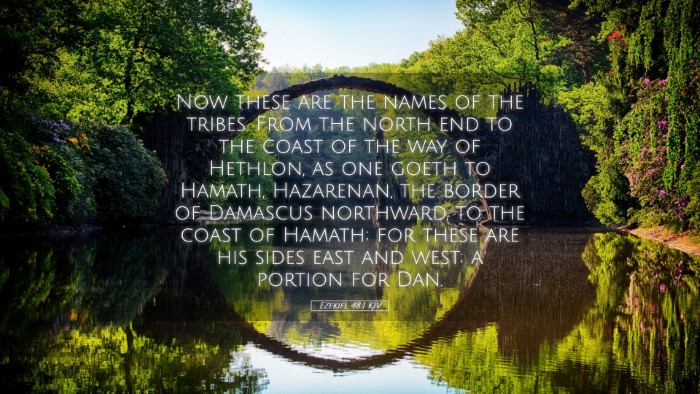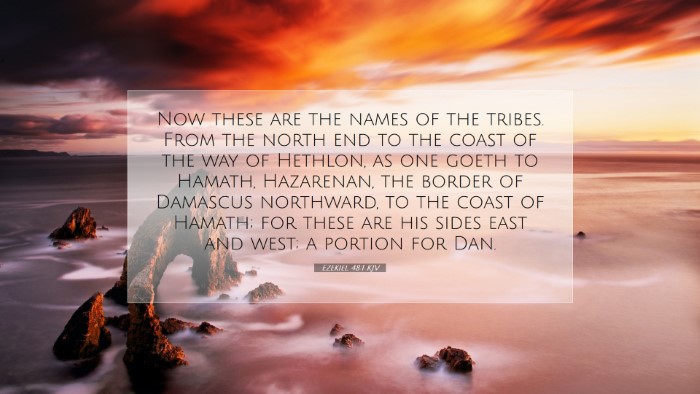Ezekiel 48:1 - Commentary Summary
Bible Verse: "Now these are the names of the tribes from the north end to the coast of the way of Hethlon, as one goes to Hamath, and Hazar-enan, the border of Damascus northward, and the coast of Hamath; for these are his sides east and west, a portion for Dan."
Introduction
The prophetic vision that Ezekiel presents in chapters 40-48 focuses on the restoration of Israel and the re-establishment of the temple in Jerusalem. Ezekiel 48:1 introduces a detailed allotment of land amongst the tribes, emphasizing not only geographical boundaries but also the spiritual and communal identity of the Israelites. The significance of this verse lies in its implications for the people of God, especially concerning their ownership, heritage, and relationship with Yahweh.
Context of Ezekiel 48:1
Ezekiel, a priest and prophet during the Babylonian exile, addresses a people displaced and in despair. The detailed measurements and allocations serve as a message of hope and restoration, reflecting God’s intention to renew His covenant with Israel. The tribes mentioned in this vision reveal not only spatial distribution but signify each tribe's unique role in the restoration process.
Commentary Insights
Matthew Henry’s Commentary
According to Matthew Henry, the enumeration of the tribes is significant for a couple of reasons. Firstly, it symbolizes God's faithfulness to His promises. Each tribe's identified border serves as a reminder that even in exile, the people can anticipate a return and reclamation of their heritage. Henry emphasizes the importance of recognizing the unity and diversity of the tribes, essential elements of the community that God had called out.
Albert Barnes’ Notes
Albert Barnes focuses on the geographical details mentioned in the text and their theological implications. He notes the meticulous nature of God’s plan, indicating that every detail matters in His design for the nation of Israel. Barnes asserts that this land allotment illustrates God's justice and perfect order; He does not overlook any tribe. Each tribe receives a significant portion, underscoring the equal treatment and inclusion of all of the twelve tribes.
Adam Clarke’s Commentary
Adam Clarke provides insights into the specific tribes' locations and spiritual significance. He mentions that Dan, as the first tribe listed here, signifies judgment but also hope, as it points to God’s ultimate sovereignty over justice and mercy. Clarke highlights that identifying the geographical boundaries serves both historical remembrance and eschatological anticipation. The specificity of the measurements illustrates that God has not forgotten His people and their rightful place in His divine plan.
Theological Implications
This verse, despite its descriptive nature, carries profound theological truths relevant for believers today. The following points summarize its implications:
- Covenant Faithfulness: The allocation of land serves as a symbol of God’s unchanging nature and His ongoing covenant with His people.
- Restoration and Hope: For the Israelites in exile, this promise of land represented hope for restoration and the fulfillment of God’s plans.
- Unity in Diversity: The equal allotment among tribes emphasizes the importance of unity within diversity, celebrating the unique roles each tribe has.
- Geographical Significance: The specificity of the land description reflects the importance of place in God’s plan and can encourage believers to recognize their identity in Christ's collective body.
Conclusion
Ezekiel 48:1 presents both a historic and prophetic glimpse into God's redemptive plan for His people. By understanding the allocation of land among the tribes, readers uncover deeper truths about God's faithfulness, the importance of community, and the hope for restoration. The insights provided by Matthew Henry, Albert Barnes, and Adam Clarke bring forth a richer perspective on this verse, allowing pastors, theologians, and students to grasp the significance of Ezekiel's vision in both its original context and its relevance today.


